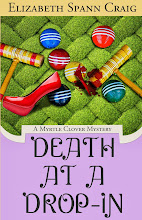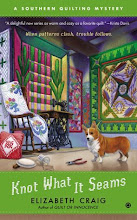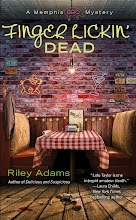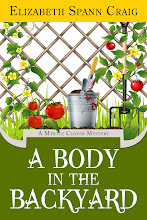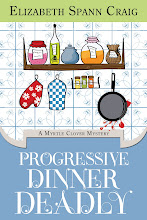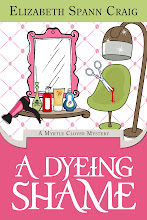by Elizabeth S. Craig, @elizabethscraig
Twitterific is a compilation of all the writing links I shared the previous week.
The links are fed into the Writer’s Knowledge Base  search engine (developed by writer and software engineer Mike Fleming) which has over 17,000 free articles on writing-related topics. Sign up for our free newsletter for monthly writing tips and interviews with top contributors to the WKB or like us on Facebook.
search engine (developed by writer and software engineer Mike Fleming) which has over 17,000 free articles on writing-related topics. Sign up for our free newsletter for monthly writing tips and interviews with top contributors to the WKB or like us on Facebook.
Have a great week!
Make Problems Actionable in Your Story: http://bit.ly/Mk0w6o @kid_lit
Different types/sizes of publishers with examples of each: bit.ly/MZU2q0 @annerallen
How to make a book trailer (video creation websites): http://bit.ly/O9PFKc @beth_barany
Narrative and the Moving Image: What Film Can Teach Us About Fiction Writing: http://bit.ly/O9PGy1
An agent on the new contractural language she's seeing from publishers: http://bit.ly/NDOXVg @rachellegardner @Porter_Anderson
The anatomy of a good website: http://bit.ly/Q44Ny7 @danyelleleafty
There is No Elevator to Success. You Have to Take the Stairs: http://bit.ly/OEFRpL @jodyhedlund
The cons of series writing: http://bit.ly/Ll92m5 @JeffSalyards
How not to be a successful self-pub author: http://bit.ly/N28t1z @ava_jae
Writing Series: The Cliffhanger Dilemma: http://bit.ly/Ml4N53 @erin_bowman
Tips for Dealing with Bad Book Reviews: http://bit.ly/PMKtjw @goblinwriter
A BookStats report of trade sales for 2011 (strong ebook showings): http://bit.ly/NDRq1Q @Porter_Anderson @pkafka
International Thriller Writers--can self-published writers apply? http://bit.ly/NDRuyw @Porter_Anderson @jamesscottbell @RobertBidinotto
What You Can Learn About Writing By Writing Thrillers: http://bit.ly/MgF0RY @nickthacker
The Social Life of a Writing Residency: http://bit.ly/Mf99M0 @PatrickRwrites
9 Simple Ways To Be a Better Writer: http://bit.ly/NDShQc
Great Reasons to Consider Skipping Over a Superhero Origin Story: http://bit.ly/NDSmU1
Worldbuilding--social roles of children: http://bit.ly/NDSMtB @juliettewade
5 helpful writing tips: http://bit.ly/NDT3N8 @mooderino
What's the Future of Publishing? http://onforb.es/NDT9Eu @forbes
Your Publisher Has Folded...Now What? http://bit.ly/NDTpDp @brandontietz
The need to reinvent ourselves as writers (particularly after a book's failure): http://bit.ly/MuOAwU
Laying Easter eggs in our stories: http://bit.ly/MuOBkj @writing_tips
Learning Writing Skills from X-Men: First Class {spoilers}: http://bit.ly/MuOEMV
Different types/sizes of publishers with examples of each: http://bit.ly/MuOEMV @annerallen
8 marketing essentials for writers: http://bit.ly/MuOPYH @writersdigest
What to Do When You Need to Cut a Major Part of Your Novel: http://bit.ly/MuPhpX @janice_hardy
Bringing your settings to life: http://bit.ly/MuPmtL
George Orwell's Four Motives for Creation: http://bit.ly/MuPtFJ @brainpicker
4 Steps to Starting a Thriller: http://bit.ly/MuPwkJ @writersdigest
The Amazing Spider-Man Beat Sheet {spoilers}: http://bit.ly/MyA4Yy
A Brief History of American Bookmobiles…in Pictures: http://bit.ly/MuQ1eK @readingape
Publishers should work on relationships with writers: http://bit.ly/MyAeiK @passivevoiceblg
5 traits of Pulitzer winning books: http://bit.ly/MNn7F5 @joebunting
A critique of a scene that's intended to show desperation: http://bit.ly/MNndwF @janice_hardy
4 Personalitiy Types For Characterization: http://bit.ly/MNni3g
Why writers need editors: http://bit.ly/NDYNrC @woodwardkaren
How to write your first cookbook: http://bit.ly/NonY4c @guardianbooks @alicecooks
5 tips to avoid distractions while writing: http://bit.ly/Noo6k7 @annelyle
Beyond the Most Common Fiction Mistakes: http://bit.ly/Noo8IV @thecreativepenn @victoriamixon
Writers and business: http://bit.ly/NoodMF @kristinerusch
Beta reading and collaborations: http://bit.ly/NDZ0Ls @bookviewcafe
Character building tips: http://bit.ly/NDZcdA @donnanewtonuk
Tips for Writing a Synopsis: http://bit.ly/NooEqc @noveleditor
Social Media vs. a New York Times Book Review Cover: Which Sells More Books? http://bit.ly/NooMpF @annerallen
10 Questions Your Readers Shouldn't Have to Ask: http://bit.ly/NooNKg @KMWeiland
Nail Your Novel – the DH Lawrence way: http://bit.ly/NooWxh @dirtywhitecandy
10 Tips For Creating An Audio Book: http://bit.ly/Nop1kI @thecreativepenn
What 1 writer has learned about marketing: http://bit.ly/NDZwZZ
The madness of marketing: http://bit.ly/Nop53T @AlexSokoloff
Languages In Fantasy: http://bit.ly/Oi3lTK @fantasyfaction
Scandinavia's Crime Lords: Stockholm's Salomonsson Agency: http://bit.ly/Oi3mXO @pubperspectives
Agent touting on Twitter? http://bit.ly/Oi3sP8 @nicolamorgan
Secrets of Blog Posts that Get Tons of Comments: http://bit.ly/Oi3wOM @JFBookman
When Your Passion Kills Your Plot: http://bit.ly/Oi3w1m @storyfix
Tips for rekindling your creative spirit: http://bit.ly/Oi3BCd
10 Reasons to Self-Publish–No More Excuses: http://bit.ly/Oi3A0Y @livewritethrive
How to make a book trailer (video creation websites): http://bit.ly/O9PFKc @beth_barany
Is Ignoring The Importance Of Setting Killing Your Novel? http://bit.ly/NGsaqf @bubblecow
How to Impress the People You Interview (and Be Professional): http://bit.ly/NWmeyQ @thewritermama
Failure Is Good for You: http://bit.ly/Oi3SoB @SF_Novelists
A quick method for creating your own images: http://bit.ly/Oi3Tcf @KarenCV
3 tips for editing your own work: http://bit.ly/Oi3XbN @AnselmAudley
Removing Elements to Fix a Problem Scene: http://bit.ly/Oi3XZr @Janice_Hardy
How to Get Your Self-Published Books Noticed: http://bit.ly/Py57mt @howtowriteshop
Establishing Ramifications: http://bit.ly/OicE5S @kid_lit
A list of 10 helpful books for writers: http://bit.ly/OicJqg
Character Names: How Do You Choose? http://bit.ly/Py5BJk @ava_jae
The gift of feedback: http://bit.ly/OicSu0
How a crisis helped a writer learn about the role of stories: http://bit.ly/Py5ZYa @Jan_Ohara
From Caricature to Character: http://bit.ly/Py66mv @KatieGanshert
12 Essential Social Media Cheat Sheets: http://on.mash.to/NtpC4v @mashable
The author's (minor) role in cover creation at trad. pubs.: http://bit.ly/NtpRMR @PaulTobin
5 Ways to Balance Writing and Life: http://bit.ly/NtpWA8 @writersdigest
How to Turn Rejection into a Positive Experience: http://bit.ly/Ntq2rx
Different types/sizes of publishers with examples of each: http://bit.ly/MuOEMV @annerallen
How to make a book trailer (video creation websites): http://bit.ly/O9PFKc @beth_barany
19 Ways To Grow Your Twitter Following: http://bit.ly/NtqfLj @woodwardkaren
The differences between commercial and literary fiction: http://bit.ly/NtqjuE @AnnieNeugebauer
How Facebook Advertising Works for Authors: http://bit.ly/NtqoOS @goblinwriter
Writing A Bottle Scene: http://bit.ly/Ntqt5m @mooderino
Ebook sales aren't a zero sum game: http://bit.ly/NtqypC @JAKonrath
10 dialogue tips: http://bit.ly/Ntu4QR
Marketing a Screenplay: http://bit.ly/Ntu6bt @writersdigest
Tips to prepare for a TV appearance: http://bit.ly/Ntv5Z6
Learning Writing Skills from Green Lantern {spoilers}: http://bit.ly/NtvcE6
Owning your goals as a writer: http://bit.ly/Ntvefe @4YALit @MeaganSpooner
6 tips for regaining your writer's voice: http://bit.ly/Ntvn2c @deewhiteauthor
8 Types of Parenthetical Phrases: http://bit.ly/Ntvlr1 @writing_tips
Planning for 1099-Misc: http://bit.ly/NWtaYQ @authorems
6 Ways to Drive More Pinterest Engagement: http://bit.ly/NWteaZ @smexaminer
How to talk about your work with acquaintances: http://bit.ly/NWtoiA
Why write fantasy? http://bit.ly/NWtV48 @dan_hanks
J.R.R. Tolkien's Top 10 Tips for Writers: http://bit.ly/NWucnL @JonathanGunson
Author Etiquette 101: How To Support Readers: http://bit.ly/NWuHy4 @jodyhedlund
3 Ways Book Publicity is Like a Zip Line: http://bit.ly/NWuTxw @WriterCrys
23 Ways to Defeat the Sagging Middle: http://bit.ly/NWv7V9 @fictionnotes
Harlequin Fail Part 2: http://bit.ly/NWvy1I @JAKonrath
My self-pub observations so far: http://bit.ly/Q3zHkL
A family vibe shouldn't be your litmus for signing with a publisher: http://bit.ly/O9mMBp @behlerpublish
The importance of good cover copy: http://bit.ly/O9nC15 @deanwesleysmith
Branding for Writers: http://bit.ly/O9nKOd @diymfa
Do you have a fear of success? 3 tips for conquering it: http://bit.ly/O9ocvK @threekingsbooks
8 tips for making time to write: http://bit.ly/O9oF0U @juliettewade
Publishing vs. Authors? http://bit.ly/NGS28t @Porter_Anderson @EmilySuess @PeterTurner @MirabilisDave
A writer on being authentic online: http://bit.ly/O9oMcS @indieauthor
Tips for stronger ebook sales: http://bit.ly/O9p4jX @woodwardkaren @JAKonrath
Salvador Dali's Creative Thinking Technique: http://bit.ly/O9poPI @MichaelMichalko
Afterward vs. Afterword: http://bit.ly/O9pwi4 @write_practice
What should writers do when faced with contradictory reasons for rejection? http://bit.ly/O9reQK @nicolamorgan
A BookStats report of trade sales for 2011 (strong ebook showings): http://janefriedman.com/2012/07/19/writing-on-the-ether-47/#2 @Porter_Anderson @pkafka
Thoughts on chapter length: http://bit.ly/O9uZpj
A look at theme, using "City Slickers" as an example: http://bit.ly/O9v78g @livewritethrive
Some self-publishing sales stats and tips for higher sales: http://bit.ly/O9wvaW
Beginner's Guide To Hiring A Freelance Editor: http://bit.ly/N2QAu2 @CA_Marshall
What Every Writer Can Learn From Regency Romance: http://bit.ly/N2QMJD @novelrocket
21 Top Links to Book Fonts for Self-Publishing: http://bit.ly/N2QOBr @JFBookman
50 Things 1 Writer Learned At Thrillerfest 2012: http://bit.ly/N2QTVJ @thecreativepenn
12 reasons to self-publish: http://bit.ly/N2SRoQ @RachelintheOC
10 steps to fill plot holes: http://bit.ly/N2T63j @howtowriteshop
Tips for starting out with a platform: http://bit.ly/N2TWNG @janefriedman
The Romantic Tension Recipe: http://bit.ly/N2U2F1 @TaliaVance
Try not to overthink your stories: http://bit.ly/N2UoeF @jamietr @janice_hardy
Sen. Schumer's WSJ op-ed piece? 'Maddening': http://bit.ly/PN99r6 @brianoleary @ChuckSchumer @Porter_Anderson
20 Words with More Than One Spelling: http://bit.ly/N2Ut23
International Thriller Writers--can self-published writers apply? http://janefriedman.com/2012/07/19/writing-on-the-ether-47/#1 @Porter_Anderson @jamesscottbell @RobertBidinotto
Book trailers--tips for finding viewers: http://bit.ly/N2UOSf @beth_barany
Why Your Hero Needs a Yappy Sidekick: http://bit.ly/N2VEyz @KMWeiland
The One Thing That Will Make Your Query Letter Stand Out: http://bit.ly/N2VKWX @krissybrady
7 Deadly Sins of Querying: http://bit.ly/N2WoDQ
Removing the YA Label: http://bit.ly/N2YG5U @pubperspectives
Using the realities of the past to unearth the fiction of tomorrow: seeking Lemuria: http://bit.ly/N2YQKp @genelempp
7 Key Things You Need for Your Blog: http://bit.ly/PnGCHK @NickThacker
Hard work is the key to success in both trad. pub and self-pub: http://bit.ly/PnHwUW @behlerpublish
Help for pacing problems: http://bit.ly/PnHNqN @roniloren
Top 10 homes in literature: http://bit.ly/PnIm3X @guardianbooks
Sen. Schumer's WSJ op-ed piece? 'Maddening': http://bit.ly/PN99r6 @brianoleary @ChuckSchumer @Porter_Anderson
The Top 10 Reasons to Avoid Writing Fiction: http://bit.ly/OLMy9P @BTMargins @lgreffenius
Forget the self-pub stigma and go for it: http://bit.ly/PRkwuM @JanetBoyer
Even editors need a book designer: http://bit.ly/OjkJHA @P2P_editor
Prologues--A Cautionary Tale? http://bit.ly/NGWhRo @Kathy_Crowley
Voice: the elusive but critical ingredient of powerful fiction: http://bit.ly/NthTDG @JodieRennerEd
Rounding out characters by adding subplot problems for them to iron out: http://bit.ly/Ntmzt7 @mkinberg
The Top 10 Reasons to Avoid Writing Fiction: http://bit.ly/OLMy9P @BTMargins @lgreffenius
Tips for adapting your book for a screenplay: http://bit.ly/OLOdfN @GrubWriters @jenna_blum
 Tips for Finding your Writing Voice
Tips for Finding your Writing Voice










